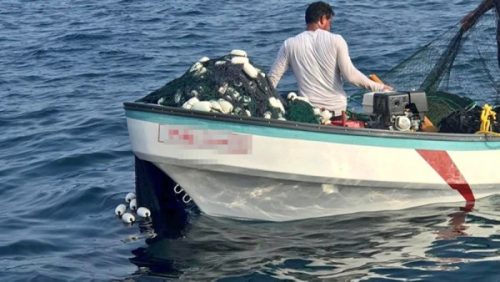The owners of ships operating through Omani ports could face a fine of up to OMR5000 for each mistake that endangers Omani waters with pollutants, thanks to a new decision by the Ministry of Transport and Communication.
The owners of ships operating through Omani ports could face a fine of up to OMR5000 for each mistake that endangers Omani waters with pollutants, thanks to a new decision by the Ministry of Transport and Communication.
Ministerial Decision 108/2019 contains the executive list for safety and the prevention of ocean pollution at Omani ports, which details transparent safety measures for ships entering Omani ports, methods for prevention of pollution, and fines for infractions by ship owners or captains.
The law has set out a fine of “OMR300 for infractions” in the case that ship Captain permits onboard flammable or radioactive materials to be brought into the port, without proper storage.
For many of the other violations such as actually causing a spill or neglecting to outfit the vessel for handling dangerous waste, the law imposes a OMR5000 fine which can be doubled for repeat offences.
According to the decision, the Captains of ships “must deliver the waste on the ship to the port before leaving. He may only keep it if he can prove to the authority that the ship can safely store the waste in order to protect its crew and the marine environment.”
Furthermore, the authorities “may monitor and inspect the waste containment facilities at the port to ensure that they are aligned with the International Convention for the Prevention of Pollution from Ships [of 1973].”
Ships must also show that they have proper safety and waste-disposal equipment needed to prevent pollution onboard the vessel when they enter Omani ports. If they do cause a spillage of waste, the owners and Captains are held responsible.
According to Article 24 of the law: “It is prohibited to cause any pollution while the ship is in the port or territorial waters. The owner or ship Captain which caused the pollution must report to the administration or port’s operators, who must then inform the authorities. The owner or Captain of the ship or freight which caused the oil spill must present all the aid needed in anti-pollution operations carried out by the authorities or port operators,” the decision added. The owner must also pay for the costs of removing the pollution and combating its effects.
In the case of ships that are not oil carriers, the owner of the vessel must present proof that they have insurance that can cover the costs of covering any potential oil spills from the ship.
“Deepening the ocean area near the port is not allowed except where necessary, when new infrastructure must be prepared or in order to create safe marine channels, or for environmental reasons, and only after gaining the proper permits,” the decision added.
Ports in Oman have their own responsibilities to adhere to, as port administrators and operators “must provide directions and guidelines for seized goods,” according to the decision, as well as clear guidelines for owners and Captains. The ports must also work to properly examine vessels and inspect them to make sure they are obeying the laws.
The new regulations were passed in the context of the Environmental Protection Law of 2001 and international agreements and conventions.\
Source: Times of Oman
